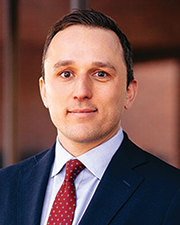
Alovisetti
Vicente Sederberg



As the Massachusetts cannabis industry grows, so do the real estate opportunities. Even REITs are getting their feet wet in the nascent industry! Appropriately zoned properties are necessary for cultivation, processing, and retail establishments, and cannabis entrepreneurs need knowledgeable representatives to help them navigate the complexities of purchasing or leasing a property.
To fully understand the Massachusetts commercial cannabis market, it helps to begin with an overview of how the law and regulations developed over time. Here are ten events that shaped the regulation of the Massachusetts cannabis industry:
November 6, 2012: The modern era of regulated cannabis in Massachusetts begins when Question 3 (also called Massachusetts Medical Marijuana Initiative) passes as a ballot initiative with the support of 63% of voters in the Commonwealth. This initiative was then put into law as Chapter 369 of the Acts of 2012, An Act for the Humanitarian Medical Use of Marijuana, which was subsequently repealed and replaced by An Act to Ensure Safe Access to Marijuana.
February 7, 2014: President Obama signs the Agricultural Act of 2014 (also called the 2014 Farm Bill). Section 7606 of the 2014 Farm Bill authorized hemp research and pilot cultivation programs. This had no immediate impact on Massachusetts; however, the limited legalization of hemp at the federal level opened the door for the legalization of hemp activity in Massachusetts in 2016.
November 8, 2016: Ballot initiative Question 4 (also called the Massachusetts Marijuana Legalization Initiative) passes with the support of 53% of the Commonwealth’s voters. On December 15, 2016, the ballot initiative was put into law as Chapter 334 of the Acts of 2016, The Regulation and Taxation of Marijuana Act (which was subsequently amended). In addition to creating a regulated commercial adult-use system for cannabis, the law also carved out hemp from the definition of marijuana.
July 28, 2017: Governor Baker signs Chapter 55 of the Acts of 2017, An Act to Ensure Safe Access to Marijuana, which amended the voter-passed Regulation and Taxation of Marijuana Act. The Act came into effect in 2017 after the legislature first delayed the implementation of the law established by Question 4 and then passed a bill meant to amend the already passed law. This legislation also established an industrial hemp program under the jurisdiction of Massachusetts Department of Agricultural Resources (MDAR).
April 30, 2018: MDAR issues an industrial hemp policy.
November 20, 2018: First day of adult-use cannabis sales in Massachusetts.
December 20, 2018: President Trump signs the Agriculture Improvement Act of 2018 (also called the 2018 Farm Bill). Hemp becomes legal in the United States and the limited framework of the 2014 Farm Bill is greatly expanded.
December 23, 2018: The Cannabis Control Commission (CCC) takes authority of the Massachusetts medical marijuana program from the Department of Public Health (DPH), becoming the sole regulator for the Commonwealth’s cannabis industry (hemp remains under the jurisdiction of MDAR).
June 12, 2019: MDAR essentially bans CBD products.
March 9, 2020: Massachusetts submits a hemp plan under the 2018 Farm Bill. The USDA subsequently approves that plan on May 7, 2020.
Looking Ahead
The Massachusetts Cannabis Control Commission approved draft changes to the Commonwealth’s adult and medical use of marijuana regulations in July 2020. Since then the CCC held public hearings and open public comment periods, which ended October 15. The CCC will soon vote on adopting the new final regulations, so stay tuned or reach out to a member of Vicente Sederberg’s Massachusetts team to discuss any opportunities or changes arising from the new regulations.
Charles Alovisetti is a partner, Elliot Choi is counsel, and Michelle Bodian is a senior associate attorney at Vicente Sederberg LLP, Boston, Mass.




